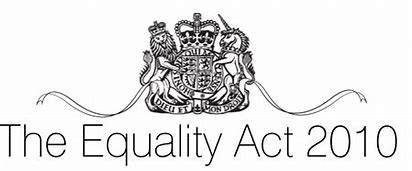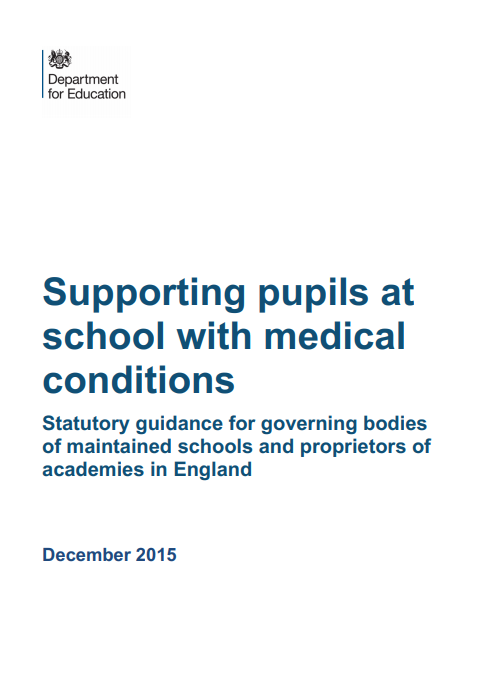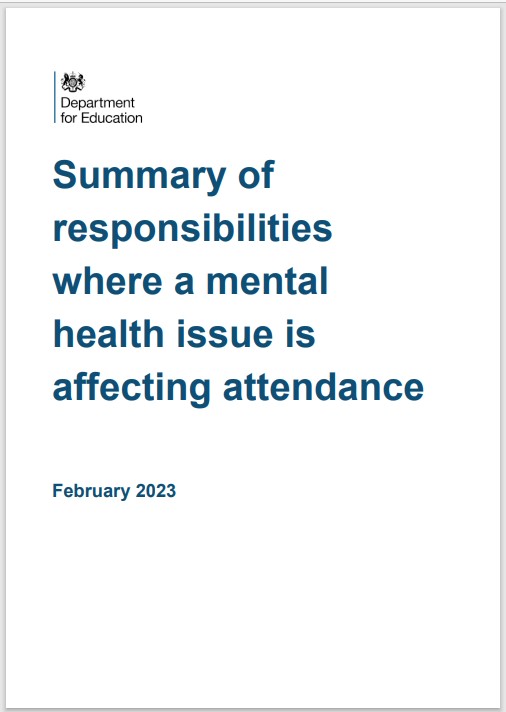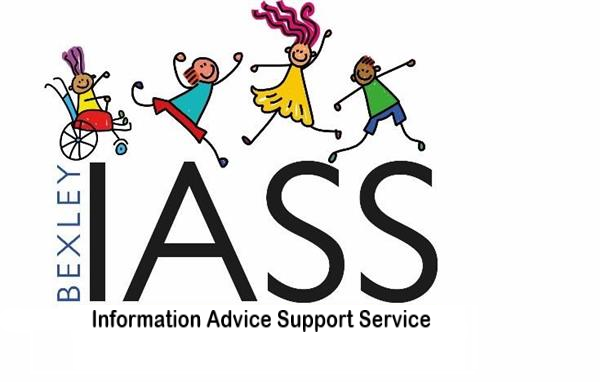The SEND Code of Practice 2015 says that mainstream schools must ensure that children and young people with Special Educational Needs and / or disability (SEND) engage in the activities of the school alongside pupils who do not have SEND. (6.2)
Part 6 of the Equality Act 2010 sets out the duties for education settings to make ‘reasonable adjustments’ for children and young people with disabilities.
Schools must provide detailed information about their arrangements for the admission of disabled pupils to the school and publish an ‘Accessibility plan’ explaining adjustments they can make and ongoing plans to improve access.
They must also publish a SEN information report explaining how they identify and support children with Special Educational Needs & Disability
If you cannot find these on a school’s website, you can contact them and ask for a copy.
The Equality Act 2010
To understand more about the Equality Act 2010 please refer to this short Government Guidance on the Equality Act 2010
If you would prefer the Guidance in Easy Read please click on this link Government Guidance on the Equality Act in Easy Read

The Equality Act duties in Education
The SEND Code of Practice 2015 summarises the Equality Act duty and says Nurseries, Schools and Colleges must:
- not directly or indirectly discriminate against, harass or victimise disabled children and young people
- make reasonable adjustments, including the provision of auxiliary aids and services, to ensure that disabled children and young people are not at a substantial disadvantage compared with their peers.
- This duty is anticipatory – it requires thought to be given in advance to what disabled children and young people might require and what adjustments might need to be made to prevent that disadvantage
What does this mean in practice: - Schools must provide detailed information about their arrangements for the admission of disabled pupils to the school and publish an accessibility plan explaining adjustments they can make and ongoing plans to improve access.
- They must also publish a SEN information report explaining how they identify and support children with Special Educational Needs & Disability – so the schools’ own website can be a useful starting point.
- Nurseries, Schools and Colleges should be thinking in advance, and reviewing what adjustments they may need to make to avoid substantial disadvantage for disabled children.
- All aspects are covered, including homework, school trips, provision of education and around exclusions.
- They must make reasonable adjustments to procedures, criteria and practices and by the provision of auxiliary aids and services.
- Nurseries and post-16 providers must also make reasonable adjustments by making physical alterations.
- Schools and the local authority are not required to make physical alterations, but they must publish accessibility plans (and local authorities, accessibility strategies) setting out how they plan to increase access for disabled pupils to the curriculum, the physical environment and to information
What is a disability?
According to the Equality Act 2010, a person is disabled if they have a physical or mental impairment, which has a long-term and substantial adverse affect on their ability to carry out normal day-to-day activities.
‘Long-term‘ – meaning 12 months or more. For example, a breathing condition that develops as a result of a lung infection.
‘Substantial‘ – meaning more than ‘minor’ or ‘trivial’. For example, it takes much longer than it usually would to complete a daily task like getting dressed.
However you automatically meet the definition of disability under the Equality Act 2010 from the day of diagnosis with 3 specific conditions:
What is a Reasonable Adjustment?
Nurseries, Schools and Colleges must take steps to ensure disabled children and young people are not substantially disadvantaged due to their disability.
‘Reasonable adjustments’ is the term used to describe these in law.
Examples of Reasonable Adjustments could include:
- Repeat instructions/information and check for understanding of tasks
- Use visual timetables with colour coding and symbols
- Alter format options onscreen or on an interactive whiteboard
- Encourage peer support to record homework tasks in the planner
- Provide access to assistive technology such as a computer for pupils who find it difficult to read large amounts of text or to write quickly enough in class
- Use multi-sensory ways of teaching
For more information on reasonable adjustments please refer to the Bexley Local Offer Page Reasonable Adjustments – Examples | Bexley Local Offer
Disability Rights UK information on providing Reasonable adjustments in schools and on Apprenticeships can be found here: DR UkThe Equality and Human Rights commission also have some useful guidance: making ‘reasonable adjustments’ for disabled pupils.
Access Arrangements & Special Considerations
Access Arrangements
Access Arrangements are pre-examination adjustments for candidates based on evidence of need and normal way of working.
Access Arrangements fall into two distinct categories:
- some arrangements are delegated to centres,
- others require prior JCQ awarding body approval.
The Equality Act 2010 requires an Awarding Body to make these reasonable adjustments where a disabled person would be at a substantial disadvantage in undertaking an assessment.
How reasonable the adjustment is will depend on a number of factors including the needs of the candidate/learner.
An adjustment may not be considered reasonable if it involves unreasonable costs, timeframes or affects the security or integrity of the assessment.
Special Considerations
Special Consideration is a post examination adjustment to a candidate’s mark or grade to reflect temporary injury, illness or other indisposition at the time of the examination/assessment.
Please speak to your child’s school or college to find out more and CLICK HERE for information from the Joint Council for Qualifications (JCQ) on specific Access Arrangements & Special Considerations.
Pupils with Medical Conditions
Governing bodies should ensure that school leaders consult health and social care professionals, pupils and parents to ensure that the needs of children with medical conditions are properly understood and effectively supported. (Key points, page 4)Pay particular attention to page 28 of this document which provides a Model Process for Developing Health Care Plans and refer to the Healthcare Plans section of this website Individual Health Care Plans (IHP) | Bexley IASS

Pupils with Health Conditions
If your child is unable to attend school, there will be alternatives available from the local authority – this is known as alternative provision. You can discuss with school if you believe you need to explore this for your child.
Share any relevant information from health professionals with school and the local authority, particularly if this indicates attendance at school is going to be difficult.
The government guidance Ensuring a good education for children with Health conditions says:
Local Authorities are responsible for arranging suitable full-time education for children of compulsory school age who, because of illness, would not receive suitable education without such provision.
This applies whether or not the child is on the roll of a school and whatever the type of school they attend. It applies to children who are pupils in Academies, Free Schools, special schools and independent schools as well as those in maintained schools.
Alternative provision
This term is used to describe the education arrangements made for pupils to continue to have a suitable, full-time education whilst they are excluded from school or cannot attend school for another reason for example emotionally based school non attendance (EBSA)
For more information please refer to our website section: Attendance & EBSA | Bexley IASS
For more information on Alternative Provisions and providers please refer to the Bexley Local Offer: Alternative Education Provisions and Providers – Independent, specialist and private | Bexley Local Offer
Please also find here the Statutory Guidance for Local Authorities regarding Alternative provisions: Alternative Provision (PDF)
Mental health issues affecting a pupil's attendance: guidance for schools 2023
This guidance builds on the Working together to improve school attendance guidance 2022.
It makes clear the expectations placed on school staff as well as academy trustees/governing bodies, parents/carers and Local Authorities (LAs) where there is a pupil experiencing social, emotional or mental health issues that are affecting attendance.
It is not only for pupils who have a diagnosed mental health condition, or a disability or special educational need.
The guidance applies to any pupils displaying any social, emotional or a mental health issue that is affecting their attendance.
Please CLICK HERE to access the summary of responsibilities where a mental health issue is affecting attendance.
If you would like further information on attendance issues your child may be experiencing or emotional based school non – attendance, please refer to the Attendance & EBSA section on this website: Attendance & EBSA | Bexley IASS

Disability Discrimination
Before deciding whether there may have been disability discrimination you will need to check that your child would count as being disabled under the Equality Act.
Not all children or young people with special educational needs will be disabled and not all disabled children or young people will have special educational needs.
What are Special Educational Needs (SEN)?
Section 20 Children and Families Act 2014 defines a child as having Special Educational Needs (SEN) if he or she “has a learning difficulty or disability which calls for special education provision to be made for him or her”.
A child is considered to have a learning difficulty if she or he:
- has a significantly greater difficulty in learning than the majority of others of the same age; or
- has a disability which prevents or hinders them from making use of facilities of a kind generally provided for others of the same age in mainstream schools or mainstream post 16 institutions.
Some examples of SEN may include:
- Emotional and behavioural difficulties (EBD);
- Autism;
- Attention Deficit (Hyperactivity) Disorder (ADHD);
- Specific learning difficulties such as Dyslexia;
- Obsessive Compulsive Disorder;
- Communication difficulties;
- Medical needs such as Epilepsy and Cerebral Palsy;
- Mobility difficulties.
What are Disabilities?
Section 6 Equality Act 2010 states:
“a physical or mental impairment that has a substantial and long-term adverse effect on a person’s ability to carry out normal day-to-day activities”.
- Normal day-to-day means things that people do on a regular basis, for example mobility, dressing or cleaning (physical co-ordination), and having a conversation.
- Long-term usually means the impairment should have lasted or be expected to last at least a year.
- Substantial means not minor or trivial.
- Physical impairment includes sensory difficulties such as visual or hearing impairments.
- Mental impairment includes learning difficulties, autism, dyslexia, speech and language difficulties, attention deficit hyperactivity disorder (ADHD).
What is Disability discrimination in Education?
It is unlawful for an education provider to discriminate directly or indirectly against a pupil on the basis of their disability. However, the school must be aware of the disability beforehand.
There are certain circumstances where an education provider is expected to take positive steps to ensure that disabled pupils have equal access to education and the provision of services.
Discrimination is unlawful in relation to:
- prospective pupils – for example, in how a school formulates their admission arrangements;
- pupils attending the school/college even if temporarily absent or excluded – for example, in how a school has applied their behaviour policy to a certain situation;
The duty applies to all education providers such as: - early-education (nurseries)
- Independent schools
- state schools and,
- further / higher education colleges.
Unlawful discrimination can apply to every aspect of school life. It covers all school activities, such as:
- extra-curricular activities;
- leisure activities;
- after-school clubs;
- homework clubs;
- sports activities;
- school trips; and
- school facilities (for example, libraries and IT facilities).
When it is justified
Discrimination arising from disability can be justified under certain circumstances, if it is:
- carried out for a legitimate reason; and
- a proportionate way of achieving that legitimate aim.
This is called objective justification.
An example of this might be:
A school carries out a health and safety assessment before allowing a wheelchair-user to attend a school trip.
They conclude that it would inappropriate to allow the pupil on the trip where they cannot safeguard the pupil and the staff.
In this situation the school could justify the unfavourable treatment towards the pupil because it is necessary and proportionate to protect the pupil’s safety.
If you feel you need further information on your routes of redress, please refer to the Understanding your rights section of this website.
Disability Hate Crime & Hate Incidents
Disability hate crimes and non-crime incidents are acts which target a victim because of the offender’s hostility to a disabled person or disabled people in general.
So any incident or crime which is perceived by the victim to be a disability hate crime will be recorded as such.
Hate crimes can be committed against a person or property.
To learn more about Disability Hate Crime and Hate Incidents please refer to the Bexley Local Offer Page: Disability Hate Crime | Bexley Local Offer
Here you will find a Disability Hate Crime Guide for parent carers from True Vision: Guide for parent carers and a link to the True Vision website: Disability Hate Crime – True Vision (report-it.org.uk)
